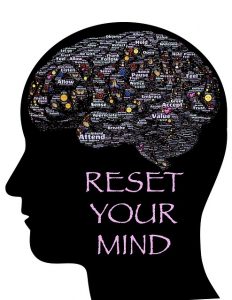Mindfulness is the practice of being present and fully engaged in the current moment, without judgment or distraction. It involves paying attention to one’s thoughts, feelings, and surroundings with a sense of curiosity and openness. In today’s fast-paced world, mindfulness has become increasingly important as a way to manage stress, improve focus, and enhance overall well-being.
The benefits of mindfulness are numerous and well-documented. By cultivating a mindful approach to life, individuals can experience improved focus and concentration, reduced stress and anxiety, increased self-awareness and emotional regulation, better sleep, and overall well-being.
Benefits of Mindfulness
 One of the most significant benefits of mindfulness is improved focus and concentration. By training the mind to stay present in the moment, individuals can better focus on tasks at hand without getting distracted by external stimuli or racing thoughts. This can lead to increased productivity and efficiency in both personal and professional settings.
One of the most significant benefits of mindfulness is improved focus and concentration. By training the mind to stay present in the moment, individuals can better focus on tasks at hand without getting distracted by external stimuli or racing thoughts. This can lead to increased productivity and efficiency in both personal and professional settings.
Another benefit of mindfulness is reduced stress and anxiety. By learning to observe one’s thoughts without judgment or attachment, individuals can develop a more balanced perspective on life’s challenges. This can help reduce feelings of overwhelm or anxiety that often accompany stressful situations.
Mindfulness also promotes increased self-awareness and emotional regulation. By becoming more attuned to one’s thoughts and feelings, individuals can better understand their own needs and respond to them in a healthy way. This can lead to improved relationships with others as well as greater self-acceptance.
Finally, mindfulness has been shown to improve overall well-being by promoting better sleep, reducing symptoms of depression, and enhancing immune function. By taking care of one’s mental health through mindfulness practices, individuals can experience greater physical health as well.
Understanding the Basics of Meditation
Meditation is one of the most common ways to cultivate mindfulness. There are many different types of meditation practices, including focused attention meditation (where one focuses on a specific object or sensation), open monitoring meditation (where one observes thoughts and feelings without judgment), and loving-kindness meditation (where one cultivates feelings of compassion and kindness towards oneself and others).
Getting started with meditation can be as simple as finding a quiet place to sit and focus on one’s breath. It’s important to remember that meditation is a practice, and it may take time to develop the ability to stay present and focused for extended periods of time.
One common misconception about meditation is that it requires complete silence or a specific environment. While it can be helpful to find a quiet space, it’s also possible to meditate in the midst of a busy environment by simply focusing on one’s breath or a specific object.
Finding Time for Meditation
One of the biggest challenges of incorporating mindfulness into one’s life is finding time for regular practice. However, setting aside even just a few minutes each day can have significant benefits.
To find time for meditation, it can be helpful to schedule it into one’s daily routine. This might mean waking up a few minutes earlier each day or taking a break during the workday to meditate. It’s also important to be flexible and adaptable, recognizing that some days may be more challenging than others.
Incorporating mindfulness into daily routines can also help make it feel more manageable. For example, taking a few deep breaths before starting a task or practicing mindful eating during meals can help cultivate a sense of presence throughout the day.
Tips for Incorporating Meditation into Your Daily Routine
Starting small and being consistent is key when incorporating mindfulness practices into daily life. It can be helpful to start with just a few minutes of meditation each day and gradually increase the duration over time.
Using guided meditations or apps can also be helpful for those new to meditation. These resources provide structure and guidance for the practice, making it easier to stay focused and engaged.
Creating a designated meditation space can also help make the practice feel more intentional and meaningful. This might mean setting up a comfortable cushion or chair in a quiet corner of the home or office.
Finally, practicing mindfulness in everyday activities can help reinforce the habit of being present and engaged in the moment. This might mean taking a few deep breaths before responding to an email or noticing the sensations of walking during a daily commute.
Overcoming Challenges of Mindfulness
One of the biggest challenges of mindfulness is dealing with distractions and racing thoughts during meditation. It’s important to remember that this is a normal part of the practice and not to get discouraged by it. Instead, try to observe these thoughts without judgment and gently bring the focus back to the breath or object of meditation.
Managing discomfort or restlessness during meditation can also be challenging. It’s important to find a comfortable position and be patient with oneself as the body adjusts to sitting still for extended periods of time.
Staying motivated and committed to a regular practice can also be challenging, especially when life gets busy or stressful. It’s important to remember that mindfulness is a lifelong practice, and progress may not always be linear. Being patient and compassionate with oneself during the process can help maintain motivation and commitment over time.
Conclusion: Making Mindfulness a Part of Your Life
In conclusion, mindfulness is an essential tool for managing stress, improving focus, and enhancing overall well-being in today’s busy world. By incorporating regular meditation practices into daily routines, individuals can experience numerous benefits, including improved focus and concentration, reduced stress and anxiety, increased self-awareness and emotional regulation, better sleep, and overall well-being.
While incorporating mindfulness into one’s life can be challenging at times, it’s important to remember that progress takes time and patience. By starting small, being consistent, using resources like guided meditations or apps, creating a designated meditation space, practicing mindfulness in everyday activities, and staying motivated and committed to a regular practice, individuals can make mindfulness a part of their daily lives and experience the many benefits it has to offer.









